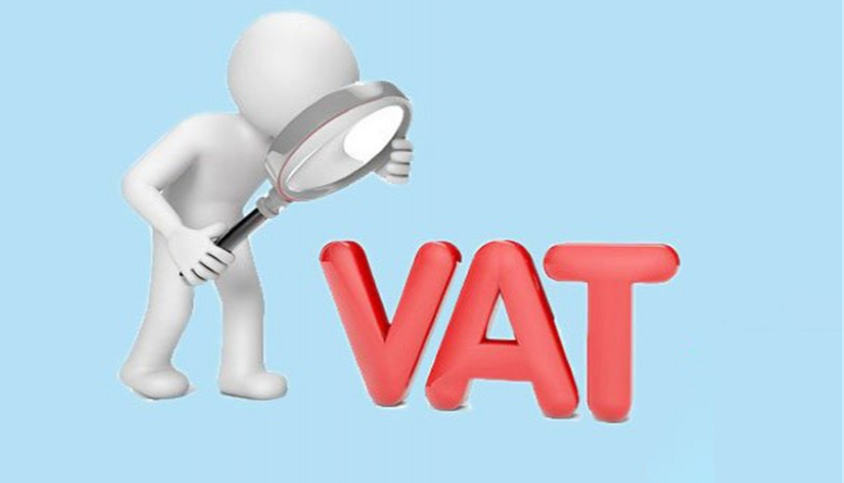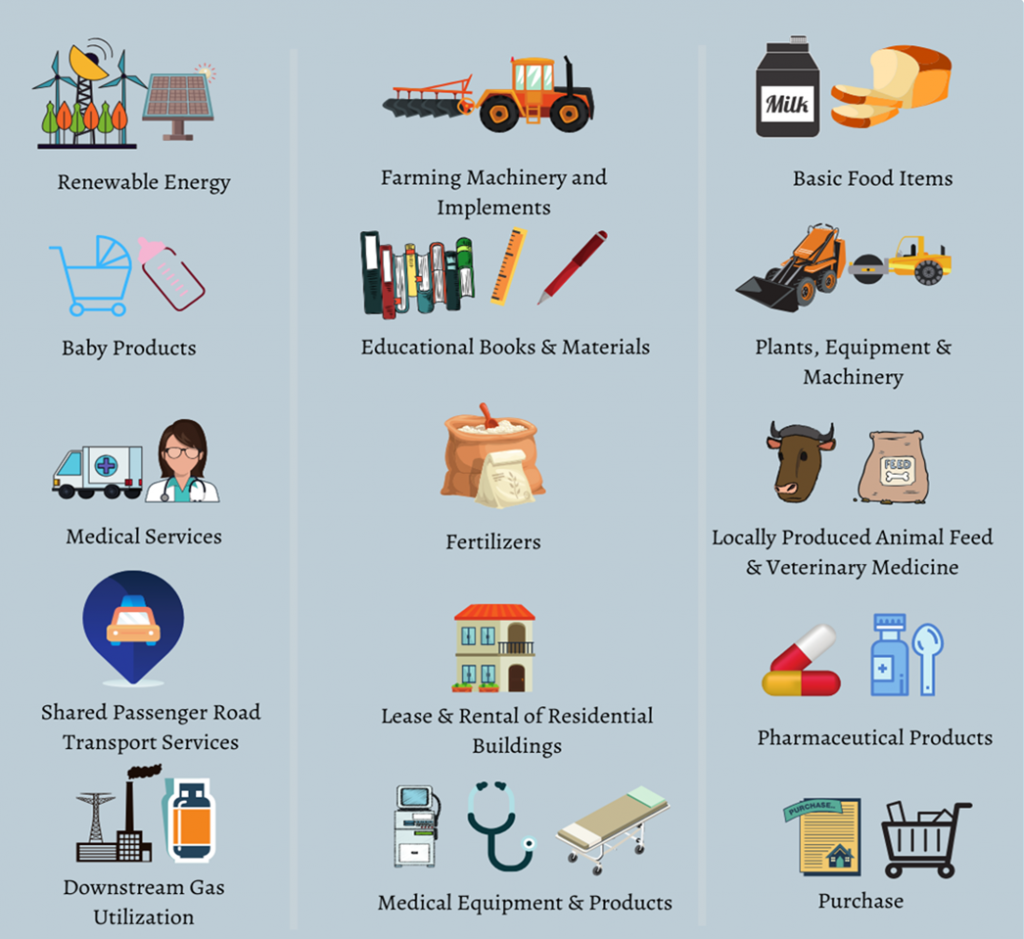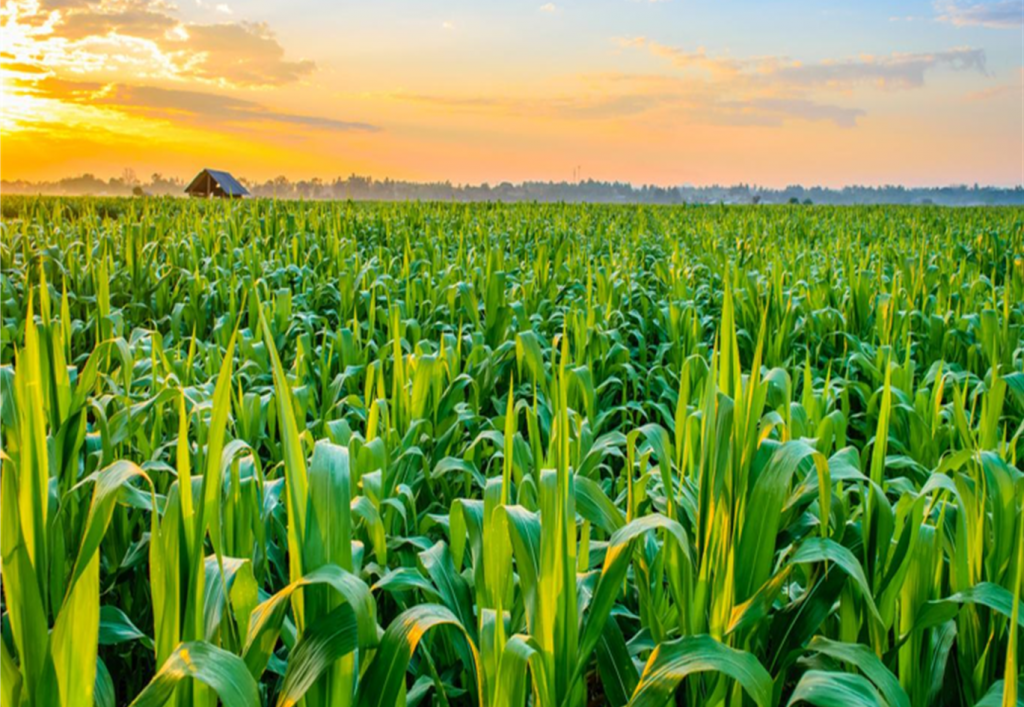BACKGROUND
Value Added Tax (“VAT”) is a consumption tax that is levied at the rate of 7.5% on the supply of all goods and services that are backed by consideration except for those goods and services specifically exempted under the VAT Act as amended. Part I and II of the First Schedule to the VAT Act lists goods and services that are exempted. These lists of exempted goods and services in the VAT Act are basically narrow in their scope of coverage. However, section 38(b) of the VAT Act as amended gives the Minister of Finance the power to make an order which shall be published in the Gazette amending, varying or modifying the lists of exempted goods and services that are set out in the First Schedule to the VAT Act. Consequently, in the exercise of this power, the Finance Minister on 3rd February 2020 issued a VAT modification order titled “Value Added Tax Act (Modification Order), 2020” (the “Order”). The Order modifies the list of the exempted goods and services in the First Schedule to the VAT Act and also expands the list of VAT exempted items in Nigeria. Interestingly, this Order came after the Finance Act, 2019 which on its part also expanded the list of the VAT exempted items in the VAT Act.
However, following the issuance of this Order by the Finance Minister, the Federal Inland Revenue Service (“FIRS”) has recently issued a Public Notice titled “the Value Added Tax Act (Modification Order), 2020: Items not Exempted from VAT” (“FIRS Notice” or “Notice”) attempting to provide clarification with respect to items that are not exempted from VAT under the Order. This FIRS Notice conflicts with the provisions of the Order and will be discussed below.
Accordingly, this Newsletter highlights the provisions of this Order with focus on its impact on the various sectors of the Nigerian economy as well as the legal effect of the FIRS Circular on the Order.

Image courtesy thefinancialexpress.com.bd
HIGHLIGHTS OF THE VAT ORDER
The key highlights of the Order include as follows:
- The Order reemphasizes that “basic food items” as defined in the Finance Act are exempted from VAT but goes further to state that the exemption does not extend to water sold in restaurants, hotels, eateries, lounges and other similar premises or water sold by contractors, caterers and other similar vendors amongst others. However, it is unclear the basis for this exclusionary recharacterization of basic food items;
- The First Schedule to the Order provides an extended list of the Common External Tariff (CET) Codes for all items that are now VAT exempt under the Order. CET Code is essentially used for identifying imported items/goods for the purposes of customs duties, administration and taxation; and
- The Order grants VAT exemption to the following items listed in the schematic below. It should be noted that some of these items are generally exempted from VAT under the VAT Act, similar VAT modification orders and the Finance Act, however the Order has gone further to define these exempted items in specific details and with specific examples.
General List of VAT Exempt Items in the VAT Order The detailed specifics of some of these exempted items mentioned above will be considered in the Section below under our sectorial analysis of the Order.
The detailed specifics of some of these exempted items mentioned above will be considered in the Section below under our sectorial analysis of the Order.
SECTORIAL ANALYSIS OF THE ORDER
As stated above, the Order outlines exempted goods and services that cut across several sectors of the Nigerian economy and to a great extent, provides incentive to the players in these sectors and all taxpayers. These beneficiary sectors are now considered as follows:
- Renewable Energy: he exempted goods are renewable energy equipment that come under CET Code 85 such as wind powered generators; solar powered generators; solar cells whether or not in modules or made up into panels; other photosensitive semiconductor devices; solar DC generators of an output not exceeding 750W; solar DC generators of an output exceeding 750W but not exceeding 75kW; solar DC generators of an output exceeding 75 kW but not exceeding 375 kW and Solar DC generators of an output exceeding 375 kW. However, batteries which are key components of renewable energy projects that have significant impact on the cost of implementing such projects were not included in the exemption list. Also, it needs to be emphasized that the provision of services in relation to all the VAT exempt goods that are listed in the Order (particularly in the renewable energy sector) are still liable to VAT because the services are not specifically exempted by the Order. As such, all services provided to a client in relation to the sale of these exempted items, the sale of electricity as a service and the rental of these exempted items are all VATable. All suppliers and service providers will therefore continue to issue VAT invoices on these non-exempt services. Interestingly and in a different breath, FIRS in its latest Notice has stated that the following items included in the Order that was validly issued by the Finance Minister are not VAT exempt and will continue to attract 7.5% VAT: (a) natural gas; (b) essential raw materials for the production of pharmaceutical products; (c) renewable energy equipment and (d) raw materials for the production of baby diapers and sanitary towels. Suffice it to say at this time that there is nothing in the VAT Act as amended or any tax law that arrogates such power to FIRS to reverse a VAT exemption validly issued by the Finance Minister. Deeper analysis on this issue is discussed in the succeeding section of the newsletter.
- Oil and Gas: The Order provides exemption for “Downstream Gas Utilisation” which it defines to mean the marketing and distribution of natural gas for commercial purposes and includes power plants, liquefied natural gas, gas to liquid plant, fertilizer plant, gas transmission and distribution pipelines. In the same vein, several items under the CET Code 84 such as hydraulic turbines and water wheels of a power =< 1,000 kW, machinery for liquefying air or other gases amongst others are all exempted from VAT. Also, petroleum products under CET Code 27 such as aviation spirit; natural gas, motor spirit, kerosine jet etc. are exempted from VAT.As highlighted above, FIRS has taken step to withdraw the VAT exemption on natural gas by issuing a Notice that conflicts with the Order.
However, we note that the federal government is considering withdrawing this VAT exemption on natural gas on the basis that it was not their original plan to exempt VAT on the product. Indeed, such action will no doubt further discourage gas producers and investors from investing in the local market with a view to meeting their mandatory domestic gas supply obligations as they would rather continue to prefer the production of gas for the export market where the profit margin is high. This is because the production of gas for local consumption is currently plagued by many issues ranging from low gas price, high cost of production and the huge debt owed to gas producers by the local offtakers to mention but a few.
- Health: The VAT Order provides the following as VAT exempt:
- Medical and Pharmaceutical Products: “Medical Products” are articles, instruments, apparatus, machine or software used for prevention, diagnosis or treatment of illness/disease, or for detecting, measuring, correcting or modifying the body structure and does not include cosmetology or fitness device and other similar devices. While the “Pharmaceutical Products” exempted are components and finished products of modern and traditional medicine intended for human use. Also, these products must be used rationally and approved by the local regulatory authority. These products are further covered under CET Codes 21, 28, 29, 30, 40, 87. 90, 94 and 96.
- Medical Equipment used for the specific purposes of diagnosis and treatment of disease or rehabilitation following disease or injury are also exempted.
- Medical Services: This means healthcare related services for both humans and animals rendered by a qualified health practitioner, excluding cosmetology, spa, gymnasium and similar services.
- Education: The items listed as VAT exempt are generally educational books and educational materials such as stationery, newspapers, boards, maps, architectural, engineering or industrial plans and drawings, etc. Notably, educational books are defined to include electronic books.
- Agriculture: The exempted goods are:
- Basic food items: These are defined as agro and aqua based staple food such as honey (raw or semi-processed), milk, nuts, bread, cereal (raw or semi processed) amongst many other. These items are basically covered under CET Code 01, 02, 03, 04, 05, 07, 08, 10, 11, 12, 15, 19, 20, 22 and 23 and are exhaustively listed in the Schedule to the Order.
- Fertilizer, Farming Machinery and Implements and Farming Transportation Equipment: These includes various fertilizers and machinery used for farming.
- Locally produced agricultural and veterinary medicines: this means drugs and vaccines produced in Nigeria for the treatment of animals, fish and plants including veterinary pharmaceuticals in various prescription presentations amongst others;
- Locally produced animal feeds for poultry, cattle, fish, etc.
- Transportation: The items listed as VAT exempt are shared passenger road-transport service which is available for use by the general public excluding hired or rented vehicles or transportation apparatus for private use.
- Real Estate: The Order states that lease and rental of residential accommodation by persons other than corporate entities are VAT exempt. This, in other words, suggests that the lease and rental of commercial and residential premises by corporate bodies are liable to VAT.On the other hand, section 46 of the Finance Act defines VATable goods to exclude immovable property (i.e. land/building) and any interest in land such as leasehold interest and mortgage. The effect of this Order therefore is that the VAT exemption on land and interest in land under the Finance Act, 2019 has now been qualified by this Order.
- General Provisions: Other exempted goods include:
- Baby Products: These are products made for babies from birth to 36 months (3 years) of age and they include feeding bottles, baby walker, baby carriages, babies’ garments and clothing accessories made of cotton, synthetic fibres, and textile materials, etc.
- Raw materials for production of baby diapers and sanitary towels
CONCLUSION AND RECOMMENDATION
The Order is a commendable piece of subsidiary legislation given that it provides more clarity and specific details on the nature of goods and services that are now exempt from VAT under the Nigerian tax system. This will indeed go a long way in assisting taxpayers to understand the nature of goods and services on which they are required to pay VAT and thereby resulting in less disputes and litigation between the taxpayers and the tax authority/FIRS. In addition, the provisions of the Order would assist in the growth and development of the different sectors of the Nigerian economy such as the renewable energy and the oil and gas sectors given that some of the products or equipment utilised in these sectors are now VAT exempt which should therefore reduce their cost.
However, despite the laudable initiative of the Order in bringing about the much-needed clarity to the Nigerian VAT system, the following grey areas in the Order and indeed in the recent FIRS Notice that threatens this Order all need to be addressed by the relevant authorities with a view to bringing certainty to the Nigerian tax system:
- The FIRS Notice on the VAT Order: FIRS by this Notice purports to take away the VAT exemptions that are conferred on renewable energy equipment, natural gas and some other items earlier mentioned. However, it should be noted that the only person conferred with the authority to vary, modify or amend the VAT exemption list as contained in the First Schedule to the VAT Act pursuant to section 38(b) of the VAT Act is the Finance Minister. Such Ministerial Order is also required to be published in the government gazette to be valid which the FIRS Notice is also lacking. Thus, in the case of Warm Spring Waters Nigeria Limited and Ors vs. FIRS (2015) 20TLRN 49, the Federal High Court held that “neither FIRS nor its Chairman has the statutory power to amend, vary or modify the list of exempted items under paragraph 2 of Part 1 of the First Schedule to the VAT Act or any other provision of the Act”. The court while further examining whether the FIRS VAT Exemption Circular No. 2007/02 of 30th November 2007 (which was fiercely challenged by the Plaintiffs in the case) was merely clarificatory or whether it purports to amend the list of VAT exempted items held that “the 2007 Circular is clearly an amendment of the list of VAT exemptions masquerading as a clarification of Paragraph 2 of Part 1 of the First Schedule to the VAT Act and by so doing the Defendant (i.e. FIRS) has exceeded its powers under the VAT Act, 1993”.
- In the same vein. The Tax Appeal Tribunal held in the case of Global Marine International Drilling Corporation vs. FIRS (2013) 12 TLRN 1 that FIRS information circulars which are in the nature of an explanatory note to tax laws cannot by any stretch of statutory interpretation override or supersede the clear and unambiguous meaning of any statutory provision. These authorities provide solid legal basis for taxpayers that are potentially affected by the FIRS Notice to continue to conduct their affairs in line with the provisions of the extant Order and tax laws pending when another VAT Order is issued by the competent authority which is the Finance Minister or the National Assembly through an enactment confirming or abrogating the FIRS Notice.
- Definition of Solar DC Generators: One of such ambiguity in the Order relates to how solar DC generators that are exempted from VAT above will be defined? This question is important because a solar generator often includes in-built batteries and other components that are by themselves not VAT exempt. Consequently, where the solar generator and its components are decoupled and imported in semi knocked down or completely knocked down parts for local assembly, will the whole individual items be treated as one solar DC generator for tax purposes or will each component be classified independently and liable to VAT individually?
 Image courtesy hnis.co.uk
Image courtesy hnis.co.uk
- Incentivizing doing business in Nigeria: In the same vein, we consider that the exclusionary recharacterization of basic food items, lease and rental of residential accommodation in the Order create disincentives to doing business in Nigeria and should be revisited.
- Status of the VAT exemption granted to the other layers of transactions in the power sector value chain: In relation to the power sector, we note that while the Order specifically provides that the marketing and distribution of natural gas for commercial purposes are VAT exempt in which case, the gas sold to the Generation Companies (“GenCos”) by the gas producers/distributors will be VAT exempt, the Order does not confirm the status of the VAT exemption granted to the other layers of transactions in the power sector value chain under the VAT Modification Order dated 1st March 2018 (“the 2018 Order”). The 2018 Order purportedly grants VAT exemption to the entire power sector value chain that includes: the purchase of gas by GenCos from gas producers, electricity generation, transmission to the Distribution Companies (“DisCos”) and trading by the Nigerian Bulk Electricity Trading Plc. such that VAT will only be chargeable and payable at the final point of distribution of the electricity to the end use customers by the DisCos who then collect and remit the VAT for the entire power sector value chain. However, the 2018 Order is not gazetted as required by section 38(b) of the VAT Act to become effective.
- Effective Date: Equally important to mention is the fact that the Order came into force on 3rd February, 2020 although it was released to the public in May, 2020. This means that taxpayers are no longer required to pay VAT on these exempt items as from 3rd February, 2020. Taxpayers who have paid VAT on these exempted items for any reason after 3rd February 2020 are encouraged to apply to the FIRS for a refund of the overpaid VAT where they are unable to adjust or net off same in their subsequent VATable transactions.
In conclusion, taxpayers dealing with these exempt items will need to amend their contracts with their counterparts to take out the VAT payment obligations in the contracts.
Detail Commercial Solicitors is distinct as Nigeria’s first commercial solicitor firm to specialize exclusively in non-courtroom practice. Based in Lagos, Nigeria’s business capital, DETAIL is totally committed to its clients’ business objectives and reputed for dealing with the minutiae. www.detailsolicitors.com
Detail Commercial Solicitors
DCS Place, 8, DCS Street,
Off Remi Olowude Way
Lekki Phase 1, Lagos, Nigeria
+234(0) 12771400-5
www.detailsolicitors.com
